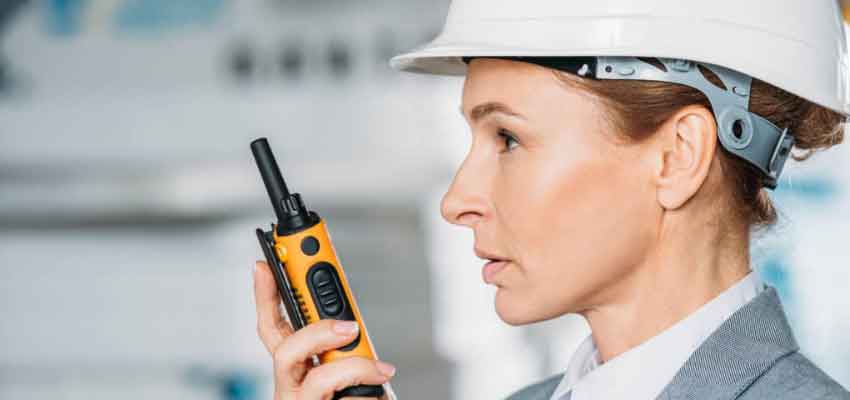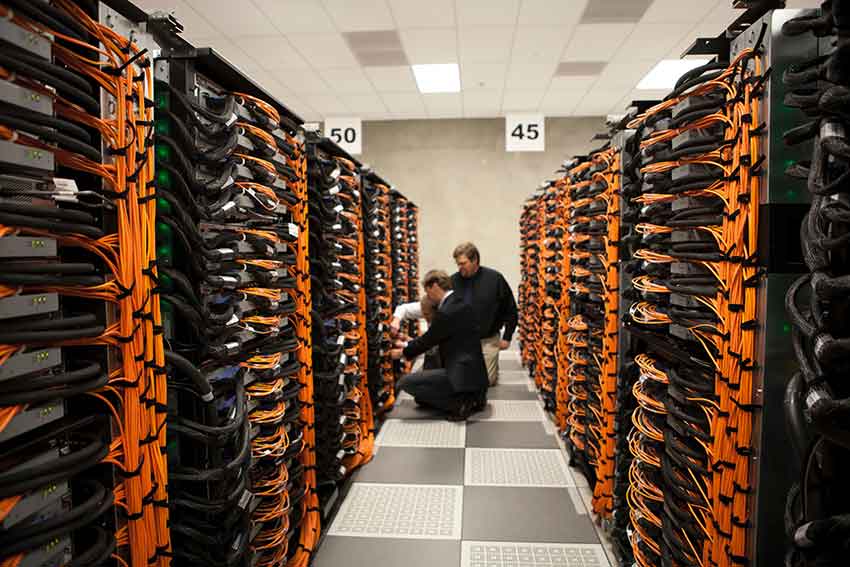Show:
How Businesses Benefit From Technology In Their Production Line
Technology has several benefits when it comes to business production. A manufacturing line is where several products are manufactured. The product on the line can be as small as a pencil or as large as an aircraft. The manufacturing line is constantly being adjusted so that the product can be produced in the shortest amount of time possible. This process, however, is starting to be automated.

Here are some of the ways that businesses benefit from technology in their production line.
1. Speed
The speed at which the production line operates compared to manual speed is incomparable. For instance, if a production process includes transporting multiple products from one place to another, a conveyor belt will execute the process faster than manual labor processes can produce. This means that the use of the conveyor belt increases productivity, which, in turn, increases sales.
You can interact with conveyor belt distributors to explore the various options that may work best for your business production line. Engaging professional and efficient distributors reduces the risk of placing your workers in harm’s way while operating faulty technology. Such distributors also eloquently describe the process and may provide training guidance if required.
2. Accuracy
In case technology is involved in measuring, a business can be confident that the measurements will be accurate. For example, when pouring liquid into containers, device settings make for accuracy, unless the device is faulty. Regular inspection is required to make sure that the technological device constantly operates at an optimum level. It is also crucial to purchase such devices from reputable and recommended distributors to prevent inaccurate measurements.
3. Less Wastage
The accuracy that comes from digital production lines means less wastage and increased productivity. Manual execution comes with wastage from spillage, inaccurate measurements, or mishandling, which leads to broken products. The accumulated wastage leads to business loss and low productivity. Investing in quality devices avoids such wastage. Technology also reduces the risk of accidentally grouping quality products with deformed products. When quality products are accidentally included in the waste pile, the business suffers from production loss. Such mishaps are common when implementing manual production processes.
4. Increased Staff Health
Handling of certain products can lead to injuries. For example, products that contain chemicals, or sharp or fragile products can lead to injuries. It’s crucial to provide workers with training, protective clothing, and a guide on how to handle accidents if these occur.
Technology, however, reduces such mishaps because the staff workers rely on the equipment to do most of the handling that may otherwise injure them. This means that the business lowers the rate of compensation and Medicare for staff members, which can lead to high business costs. Workers still require training on how to operate the technology, however, the process is less risky.
5. Simultaneous Processes
Computers can also be used to control the equipment in your production line. Technology makes it possible to run products on the line in a simultaneous manner. You need to be able to control them using the same computer. With the aid of a computer program, you will be able to program the different items to do their jobs automatically. Incorporating a USB compliance test into this system ensures that all USB interfaces in the production line meet standard specifications, enhancing compatibility and reducing potential connectivity issues. This will improve your production line’s efficiency and keep you from spending too much time manually supervising machine functions.
6. Efficient Data Storage
Technology is reliable because it helps keep track of your inventory, invoicing, monitoring the flow of materials, and tracking the progress of each employee. Storing the production line process becomes quicker, and you can store larger amounts of information compared to manual recording.

7. Public Liability
A major problem that most businesses face nowadays is product liability. This is the case when a manufacturing company makes a mistake when manufacturing a particular product that could harm the public’s safety. Manufacturers now use this technology in the line of business to eliminate this risk. They know how technology helps the production line in business by creating systems that would keep the public safe from products that might cause them harm.
8. Competitive Advantage
A business operates to increase sales and maintain customer loyalty. Such success needs to be strategizing considering competition. If competitors are using advanced technology as part of their production strategy, your business may lag in comparison to the competition. Your slower rate of production may mean that your customers will gravitate towards competitors producing quality bulk products.
9. Uniformity
Technology on the production line makes for uniformity. The mechanic synchronization means the end products are uniform, which is not the case with manual production. Manually produced products result in varying designs and assembly styles, for example, because each worker produces different results from the next. Uniform products make for a better product marketing strategy and visual appeal.
10. Cost Efficient
One reason why many corporations have chosen to use mass productions is that they are able to save a lot of money by not having to hire as many employees as they would if they were to produce each item by hand. By using a large-scale production company or assembler, they can make items that will be available for sale in bulk to distributors and retail stores.
Conclusion
Technology on the production line benefits businesses in several aspects. Technology speeds up the process and also ensures measurement accuracy. Wastage is reduced, and there is a reduced risk of workers getting hurt by manual processes. Simultaneous production processes can occur without constant supervision, while storing of data becomes more efficient. Also, product liability increases, while the results make for a competitive advantage. Uniformity of the end products makes for quality production. In addition, processes that include technology are also cost-efficient.
It is, however, important to purchase production line equipment from reliable distributors. If devices and gadgets are not of quality, workers risk getting hurt and products may get destroyed in the process.
Always research the providers before purchasing to make sure that you prioritize safety in your business production line. Furthermore, training the workforce is also important for quality production processes.

 Return to Previous Page
Return to Previous Page








